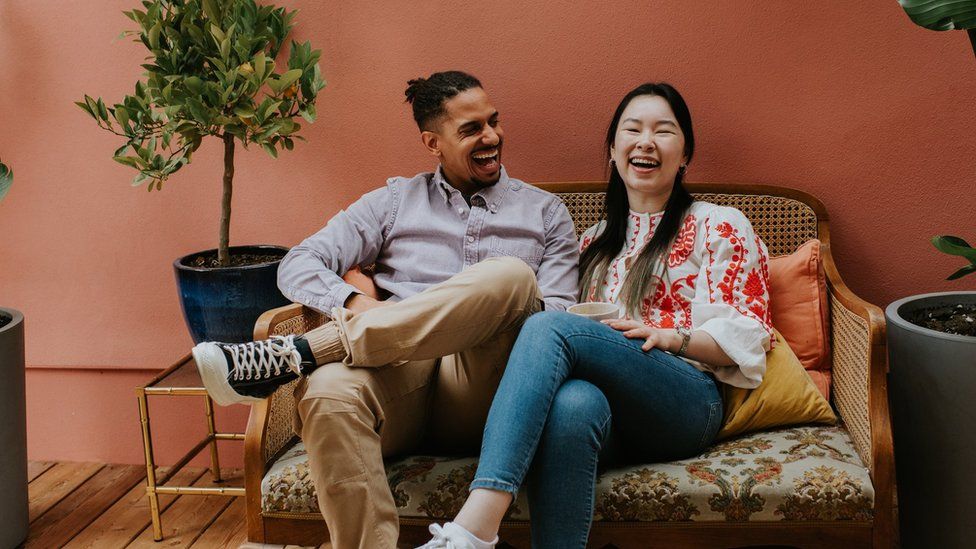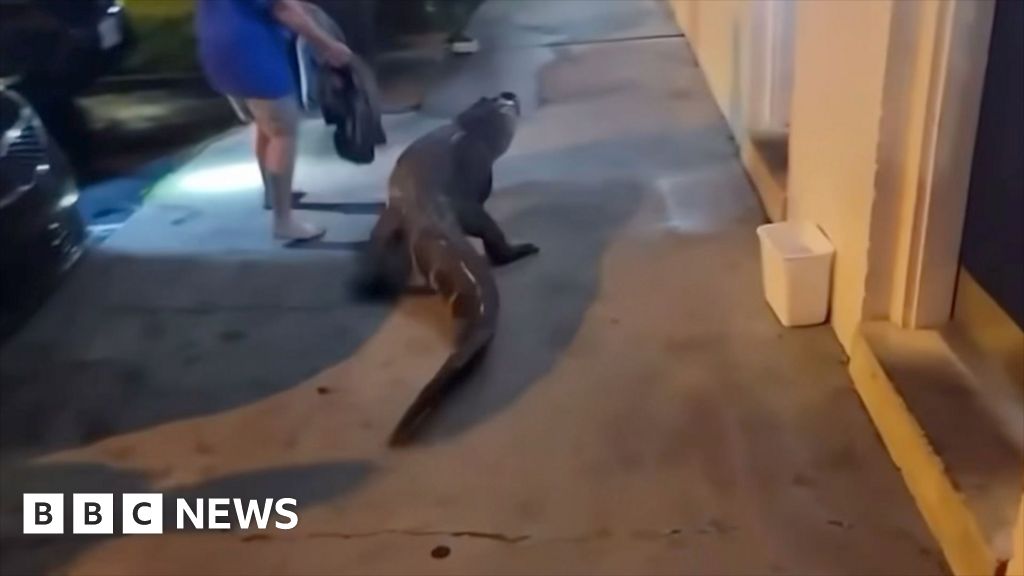ARTICLE AD BOX
 Image source, Getty Images
Image source, Getty Images
'Thank goodness we vote for the same party'.
By Jason Armesto
BBC News, Washington
Angela Hammontree, 55, considers herself very conservative - "pro-gun, pro-Bible, pro-Trump".
That can trip her up when it comes to love, though.
"The first person I dated after my divorce seemed like a great guy," Ms Hammontree recalled. "And then I found out he was a freaking Democrat!"
They dated for three months, but broke up one month before the November 2020 presidential election.
"I couldn't stand it any longer," she said. "I really liked the guy. But I just don't feel like a relationship can go very far without those same [political] views."
Now, she checks voter registrations on Google before dates - just to make sure she's not going to be dining with a Democrat.
In fact, studies suggest that Ms Hammontree is not alone in her view on relationships. A 2020 YouGov/Economist poll found that 86% of Americans think it has become harder to date someone who supports the opposite political party.
Experts say that who you vote for has now risen to be among the most important factors in love.
Image source, John McEntee
Image caption,John McEntee, left, is a cofounder of The Right Stuff, a new dating app that caters to Republicans.
The challenge is particularly acute - and cuts across generations - for singletons living in places where they are in the political minority.
Young people who worked in the Donald Trump White House, for example, famously found romance difficult in liberal Washington DC.
Daniel Huff, a former Trump White House adviser, once went on a date, ordered cocktails, and found himself alone before they even arrived. In that small window of time, his date had learnt where Mr Huff worked. She promptly walked away.
That experience inspired him and fellow ex-Trump staffer John McEntee to launch a dating app, The Right Stuff, earlier this month, which only allows conservatives to join.
"Conservatives in liberal areas are totally discriminated against," Mr McEntee complained. "They're made to feel on their own. Totally alienated."
To sign up, users must disclose standard information such as height and gender. But to add some personality to their profile, they can choose to fill in prompts including: 'A random fact I love about America'; '[My] favourite liberal lie'; 'My favourite conservative pundit' and 'January 6th was...'.
A user must be invited to join. In theory, this will keep liberals from accessing the app and possibly spoiling it for serious users.
Image source, Nora Murphy
Image caption,As a liberal living in a conservative part of the US, for a long time Nora Murphy struggled to find a partner who shared her political values.
Liberal women in conservative parts of the country find dating equally challenging.
Nora Murphy, 32, spent a few years exploring the dating scene in deep red Idaho. Recognising she was in the political minority, Ms Murphy sought to give conservative men in her area a chance.
"We'd be getting along great and then politics would come up and it was clear it just wasn't going to work out," she said.
She eventually married a Romanian.
The dating divide is just one symptom of an extremely polarised United States. According to the Pew Research Center, "Democrats and Republicans are farther apart ideologically today than at any time in the past 50 years".
And last month, a CBS poll found that a plurality of Democrats and Republicans see the other side of the aisle not as political opposition but as "enemies".
Ms Hammontree, who lives in Canton, Ohio, conceded that her views on politics and dating were a relatively recent development. Though a lifelong Republican, she doesn't remember caring so much when she was younger.
"I don't think I would've thought about it as much of a deal-breaker then," she said.
Image source, Angela Hammontree
Image caption,Angela Hammontree thought she had found a great match until she learned he was a Democrat.
Researchers think that as more singles pair up with partners who share their politics, those same politics will be passed along to their children. "This has the potential to amplify polarisation through the creation of homogenous social networks and households," a 2017 study said.
Indeed, a trend of liberals and conservatives living in clusters of their own political tribe has become more pronounced in recent years, according to Rose McDermott, a political psychologist at Cornell University.
The narrative of a deeply divided modern America - in the dating world and society broadly - has truth to it, said Dr McDermott.
"I don't think it's overblown," she said. "I think it's getting worse."

 2 years ago
39
2 years ago
39








 English (US) ·
English (US) ·